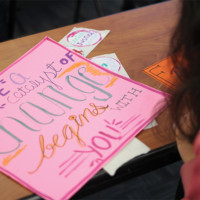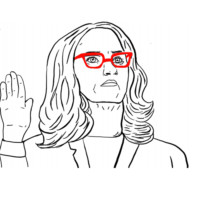With the recent indictment of several high profile celebrities, the rise of the #MeToo movement and the controversial appointment of Justice Brett Kavanaugh to the Supreme Court, sexual assault is currently one of the most widely discussed topics in the United States.
The Rape, Abuse and Incest National Network (RAINN), the nation’s largest anti-sexual violence organization, defines sexual assault as “sexual contact or behavior that occurs without explicit consent of the victim.” According to their data, someone is sexually assaulted every 98 seconds in the United States. In addition, 90 percent of rape victims are female, and 47 percent of transgender people are sexually assaulted during their lifetime.
These statistics are alarming.
Even though sexual assault is currently at the forefront of the national conversation, it is not a new issue. Rape and sexual assault have been used by people in power for millennia to assert dominance over their victims. Laws, such as the Louisiana “Head and Master” law, which was not repealed until 1979, gave women little autonomy and made it easy to excuse issues of sexual assault and rape.
Today, sexual assault and rape culture are evident within the White House, Hollywood and on college campuses. Despite the fact that students at Grant have to live with the daily impacts of sexual assault, many view it as something that only happens beyond the walls of our school. However, according to RAINN, people between the ages of 12 and 34 are at the highest risk for sexual assault, making high schoolers part of the most commonly affected group.
Many people at Grant overlook sexual assault’s direct manifestation in our local community because we have failed to directly address how it affects students at our school.
There is a gap in the conversation.
In this issue of Grant Magazine, our goal is to start filling this gap. This edition is divided into three sections – Discussion, Action and Reflection – to make it easier to understand the complexity of this topic. By not discussing sexual assault or taking direct action to stop it in the Grant community, we allow it to continue to fester. Although we at Grant Magazine recognize that this edition will not erase any past trauma or completely solve any problems, we hope it sparks a conversation about sexual assault that will result in tangible community-wide change.
Resources for help and further education:
If you or someone you know has just been sexually assaulted, call 911 immediately.
If time has passed since the assault, call your local non-emergency police number.
– Portland, Oregon non-emergency police number: 503-823-3333
– National Sexual Assault hotline: 1-800-656-4673
– Youthline: 877-968-8491
– Complete a Safe Oregon Report or use the Safe Oregon App: www.safeoregon.com
If you have had a sexual assault kit collected in Portland and want an update on the status of your kit, call: 503-823-0125
email: roseproject@portlandoregon.gov
– Rape, Abuse and Incest National Network: www.rainn.org
– Oregon Coalition Against Domestic and Sexual Violence: www.ocadsv.org
– Me Too Movement Website: www.metoomvmt.org




